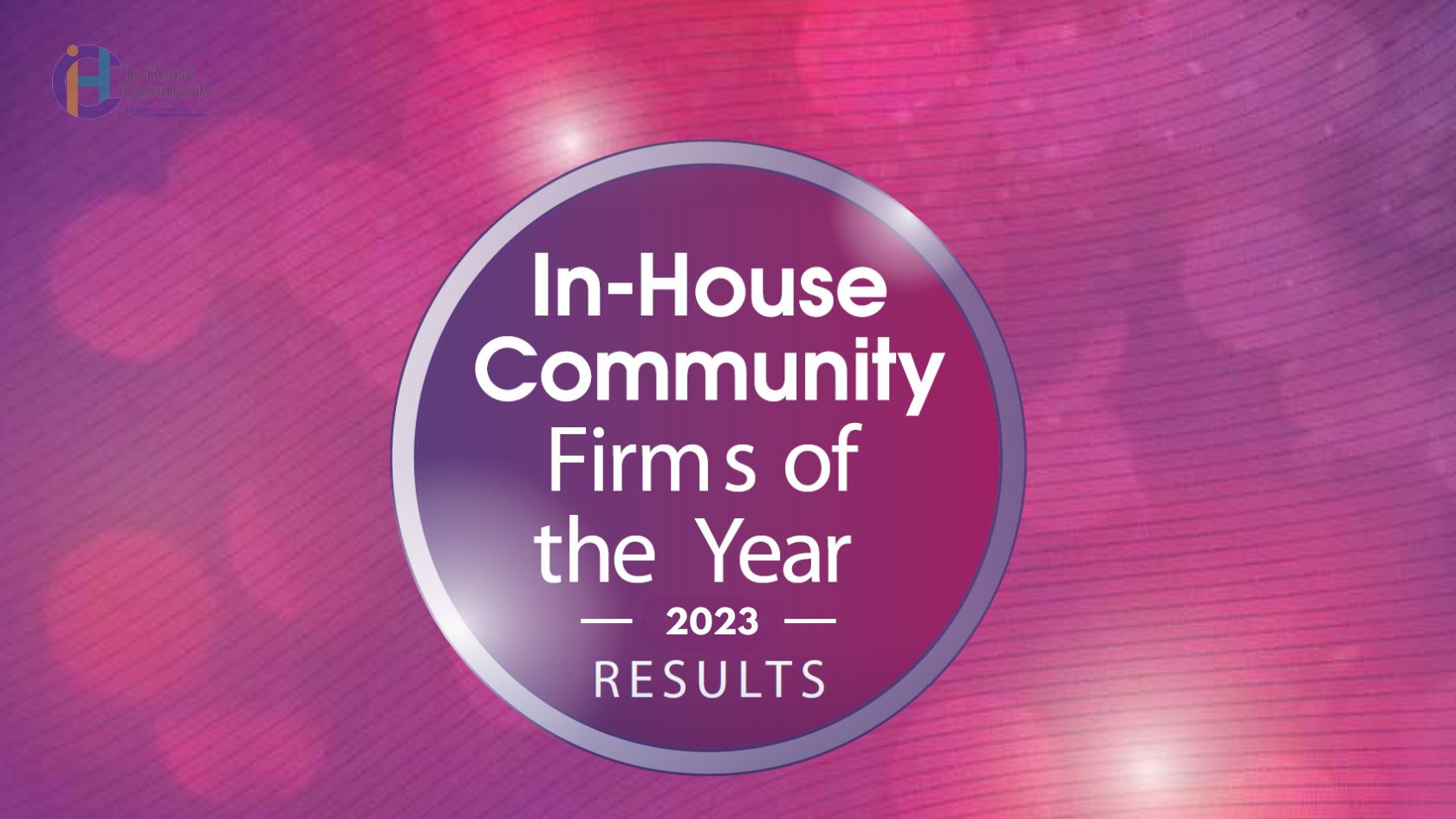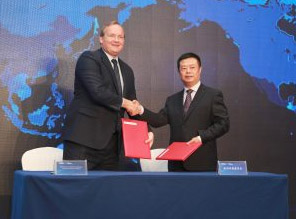Taking challenges head-on and leading with confidence
Before joining the AI legal solutions provider docQbot, Jiang Fengwen was a groundbreaking General Counsel for China, Asia, Middle East and Africa, working in major MNCs in the electrification, power and automation manufacturing industry. Here she share’s on mentorship, leadership, her biggest challenges, and her motivation.
What attracted you to a career in corporate law, and what prompted a move in-house?
I was attracted to an in-house legal career because I was more interested in becoming a business savvy attorney, rather than spending lots of time on business development and keeping time sheets as you do in law firms; and I wanted to be involved in all major stages of business transactions, rather than only participating in the mid-stage aspects of project contract drafting and negotiations. Furthermore, I have always been attracted to the diversity and the high-tech aspects of the multi-national companies (MNCs) I have worked for, which have been engaged in a broad range of industries including power grids, robotics, industrial automation, digitisation, air-space, transportation, climate solutions, industrial equipment, bath & kichen business and specialty chemicals. In these companies, I was involved early on in the planning stages of all their major transactions, and thus I was able to play an instrumental role in the legal strategies and implementation support including in all phases of foreign direct investments (FDI), M&A, commercial, real estate and construction projects, on both the deal side and the dispute resolution side.
Did you have a mentor early in your career? Is mentorship important?
Yes, in my initial two years in-house at AlliedSignal, I had mentors who gave me guidance in my career development and recognition for my major achievements for the company, which were important for my growth early in my career. In addition and most importantly, I have always paid great attention to learning from my leaders and colleagues whom I have trusted most as my unofficial mentors. They have helped me continue to grow over my entire legal career, for which I am truly appreciative.
What do you think are the biggest challenges facing in-house lawyers today?
In-house lawyers are instrumental in enabling and safeguarding their business strategies and related implementing steps. With the global outbreak of Covid-19 which caused substantial damage to people’s lives and to the global economy, and due to various regional conflicts, the rise in anti-globalisation sentiments, and the ongoing US-China trade war, the challenges, workload and difficulties for in-house counsel have greatly increased. This requires them to significantly expand and upgrade their legal knowledge and to make greater efforts in order to successfully achieve their businesses goals with minimum legal risk.
What have been your biggest challenges? Were there any particular challenges you team faced that you overcame that you can share?
In the three decades of my legal career, I have successfully resolved tremendous challenges and protected my companies from various legal and integrity risks, but I can only share very few here.
Early in my practice at a US company, a particular business unit had serious long-overdue Accounts Receivable (A/R) collection problems that they had been unable to resolve for over two years, despite many trips by their senior leaders to negotiate with the debtors. The business challenged our legal department by providing us a list of ten long-overdue A/R cases. I took the challenge head-on by choosing the hardest two cases to tackle first, and through considerable effort to design the best legal framework to enable us to conduct more effective negotiations, I successfully collected the full overdue amount in both cases in one trip. One of the two cases involved US$2 million, which was a very large sum of money for the business at that time in late nineties, thus I was able to resolve one of the business’ big headaches, and in doing so won praise for our legal department and elevated our reputation within the company as problem solvers.
I have always had so many projects on my plate at any one time, be they FDI’s, M&A or other, and so I constantly worked extremely long hours, negotiating and moving deals forward as quickly and efficiently as possible. For example, once in the late nineties when I worked at Gibson, Dunn & Crutcher, I negotiated and closed a major generator manufacturing JV in Fuzhou China, working continuously for 48 hours without a break in order to meet the approval deadline set by the government. The next day, after we closed the deal at mid-night, the then Fujian government leader Xi JinPing met with our project team and praised us for our hard work and contribution to the new JV’s establishment.
Another example was when, after the business team had been pursuing two major airspace JV projects for more than two years, without much movement in the negotiations, I took over the legal responsibilities and six months later, with intensive contract drafting and negotiations, often working late into the night, I was able to close both projects (at the Singapore Airshow).
Furthermore, I have also taken big challenges by leading major M&A and unique types of absorption mergers of several FIEs, as well as unprecedented surviving demergers of foreign investment holding companies and manufacturing JVs, which all required unique legal strategies, in-depth legal knowledge and extremely hard work in order to drive the deals to a successful close on urgent timelines so as to meet our global closing target dates.
Another type of major challenge I have handled in my in-house legal career related to breach of integrity/code of conduct investigations, involving employees or ex-employees’ stealing money from the companies. In such cases, I and my team had to take a firm stand to uphold ethical standards under the law and the company’s policies. At the same time we had to adhere to the highest standards of integrity and professionalism in conducting the investigations, working closely with internal leadership and law enforcement agencies, to recover the stolen funds and take appropriate action against the violators, thereby protecting the companies from huge losses and severe reputational damage.
Finally, I have led and successfully resolved many major cases of labour unrest for my former US MNC employer (2011-2013) in connection with (i) a cross-provincial border absorption merger of two companies, dissolving the local entity and moving the business from Luoyang (in Henan province) to Wujiang (in Jiangsu province); (ii) a government expropriation of our two manufacturing plants involving 1,250 employees in Jiading District of Shanghai; (iii) a business restructuring case which involved moving the business from Shanghai to Wujiang in Jiangsu province and hundreds of employees thereto, and (iv) a legal entity disolution case in Shenzhen involving moving its business and more than 100 employees from Shenzhen to Wujiang (in Jiangsu province). In each case, I worked day and night to lead the strategic planning, seamless execution and on-site directing of the business and functional teams in close cooperation with the local government and law ennforcement agencies, to take all necessary action internally and externally to prevent the esculation of labour unrest, and resolving the disputes swiftly. For example, in the government expropriation case in Jiading, we were able to get 98 percent of the 1,250 employees to sign their severance agreeements on day one, a record-breaking achievement during this time.
What did you most look for in a law firm when outsourcing work?
We used outside counsel primarily in our global M&A deals as well as for cyber-security-related advice and in dispute resolution cases. Other than that we did all of the legal work in-house (including all phases of FDI projects, local M&A deals, the full spectrum of commercial transactions, real estate and construction, labor and employment, data privacy, etc.). We always looked for law firms with the best legal expertise in the relevant field, with high ethical standards, and who had a good understanding of our business so they could come up to speed very quickly. Of course, reasonable billing practice, and the potential for a long-term cooperative relationship were also very important in our selection process.
Other than law firms, what service providers, technology or tools helped you most as a legal department?
We typically did not use other service providers, but we did use legal technology and tools to drive our corporate governance by creating a digitised country and regional corporate governance portal, an on-line legal FAQ resource, an online team collaboration space, standardised contract templates, company chop on-line approval process, an external legal fee on-line approval process, and other tools to drive the legal aspects of the company’s transition from traditional manufacturing to digitisation, and to migrate all of the company’s ability platforms and solutions from overseas to China, to comply with the PRC Cybersecurity Law and implementation regulations and standards. All of these have significantly strengthened our company’s corporate governance, board and legal entities management, increased our legal department and the company’s productivity and efficiency, and reduced and prevented risks and waste of time.
What aspects of your in-house role did you most enjoy?
I most enjoyed my enabling and driving deals forward, quickly with efficiency, at high quality and low cost. In establishing and restructuring hundreds of FIEs in the Asia Pacific, in which I was able to take advantage of my bilingual capability, and being licensed in both China and the US. It all required a high-level of dedication and commitment, and the ability to work effectively with the business team and functional department heads. This provided me with a tremendous amount of professional and personal satisfaction, and earned our in-house legal team the respect and gratitude of all of our colleagues on the business side and in the other departments. I also enjoyed my leadership role in providing regional legal strategies and execution support for our global M&A and legal entities restructuring projects in AMEA, including in the most recent three years, the global acquisition of GE Industrial System’s business by ABB and the subsequent business restructuring arrangements, as well as the global carve out of ABB’s Power Grids business, the unprecedented demergers of its China holding company into three holding companies, and demerger and restructuring of its manufacturing JVs and the reverse carve out of its electrification business, to achieve its global goal of separating their Power Grids business from the remaining digitisation businesses.
In addition, I have also really enjoyed my leadership role in designing and driving of the various legal digitisation and contracts standardisation during my legal practice in US and EU MNCs, for which I have achieved Certified Green Belts during my entire in-house legal career.
What attracted you to your current roll with docQbot?
I was attracted to docQbot because of my great interest and prior achievements in legal digitisation and contract standardisation (as stated above), and I view my new role as Senior VP and Senior expert at docQbot as the continuation of that work, and as an opportunity to further legal AI development and leadership. In this role, I help the in-house corporate law departments to design and implement legal-tech solutions utilising docQbot’s cutting edge tools. In addition, drawing on my extensive experience heading up major M&A, spin-off and demerger deals as well as the full spectrum of commercial transactions and internal advisory matters, I provide direct leadership for key elements for docQbot’s content development initiatives.
What advice would you give to young lawyers starting out in their careers today?
It is instrumental to be persistent in learning new things and best practices from all people through all channels, accumulating relevant skills and challenging yourself in all stages of your life, so that you can continue to grow and rise to opportunities, and lead with confidence. Ideally, a young lawyer should start with a reputable law firm to build up a solid and broad legal foundation before moving in-house, and once in-house, it is very important to have a good on-boarding training to promptly learn the company’s corporate structure, policies and business operations so that you have a big picture in mind to guide you in your legal work. When you are assigned to a project, make sure to talk to the business and functional teams to understand the background of the project, whether there are previous or on-going negotiations between the business team with the other party, and if yes, ask for a business term sheet before you start contract drafting or review, to enable you to know clearly whether you can do the project within the parameters of law and corporate policy. Moreover, it is important that you do not too quickly or easily say “no” until you exhaust all the alternatives. You must always do your best to propose a solution when you raise an issue.
In addition, you should share knowledge and experience with your team members and help each other whenever you can.
Finally, always do your homework and be well prepared whenever taking on new tasks or talking to government agencies, and face difficulties head-on and never try to escape from them.
What is your hinterland (what do you most like to do away from work)?
I exercise regularly, read extensively, and watch news and movies involving legal, detective and suspense stories.
In conclusion
“A life in the legal profession is like a running a sprint and a marathon: we need both speed and endurance. We must always challenge and refresh ourselves and be the best of ourselves in all stages of our career.”
| From then to now: “After 4 years of legal practice at major US law firm, Gibson, Dunn & Crutcher where I primarily worked on FDI in China, M&A in Asia, and initial public offering (IPO) in US, I joined AlliedSignal International in 1996, a US company specialised in airspace, specialty chemicals and transportation businesses, as their Assistant General Counsel for Asia Pacific. Later in 2000 AlliedSignal merged with Honeywell (a US company specialised in airspace, and automation), where I served as lead counsel for the combined company’s power & transportation business, and specialty chemical business for Asia Pacific, as well as lead counsel for their corporate matters in China. In 2005 I joined American Standard (a US company specialised in bath & kitchen, vehicles, and air-conditioning businesses), as VP-General Counsel for Asia Pacific. After a series of global divestitures and spin-offs, their remaining air-conditioning business was acquired by Ingersoll Rand (a US company specialized in climate solutions and industrial equipment businesses) in 2008 and I became their VP-General Counsel for Asia Pacific for the combined companies. I remained in that role until 2013 when I joined ABB as their Senior VP-General Counsel for North Asia and China initially, and was subsequently promoted as their Senior VP and General Counsel for Asia, Middle East and Africa (AMEA). During all these years, I have led the work on hundreds of FDI projects (involving all phases including establishment, operation, restructuring and dissolution) and international and domestic M&A deals in China and AMEA, as well as many innovative legal digitisation projects covering contract standardization, online corporate governance portal, and private cloud initiatives in the region.
“I have recently joined docQbot, a visionary legal AI service Cloud platform in China, as Senior VP and Senior Expert, helping the company to design and implement legal-tech solutions utilizing docQbot’s cutting edge tools, and provide direct leadership for key elements for docQbot’s content development initiatives.” |





















